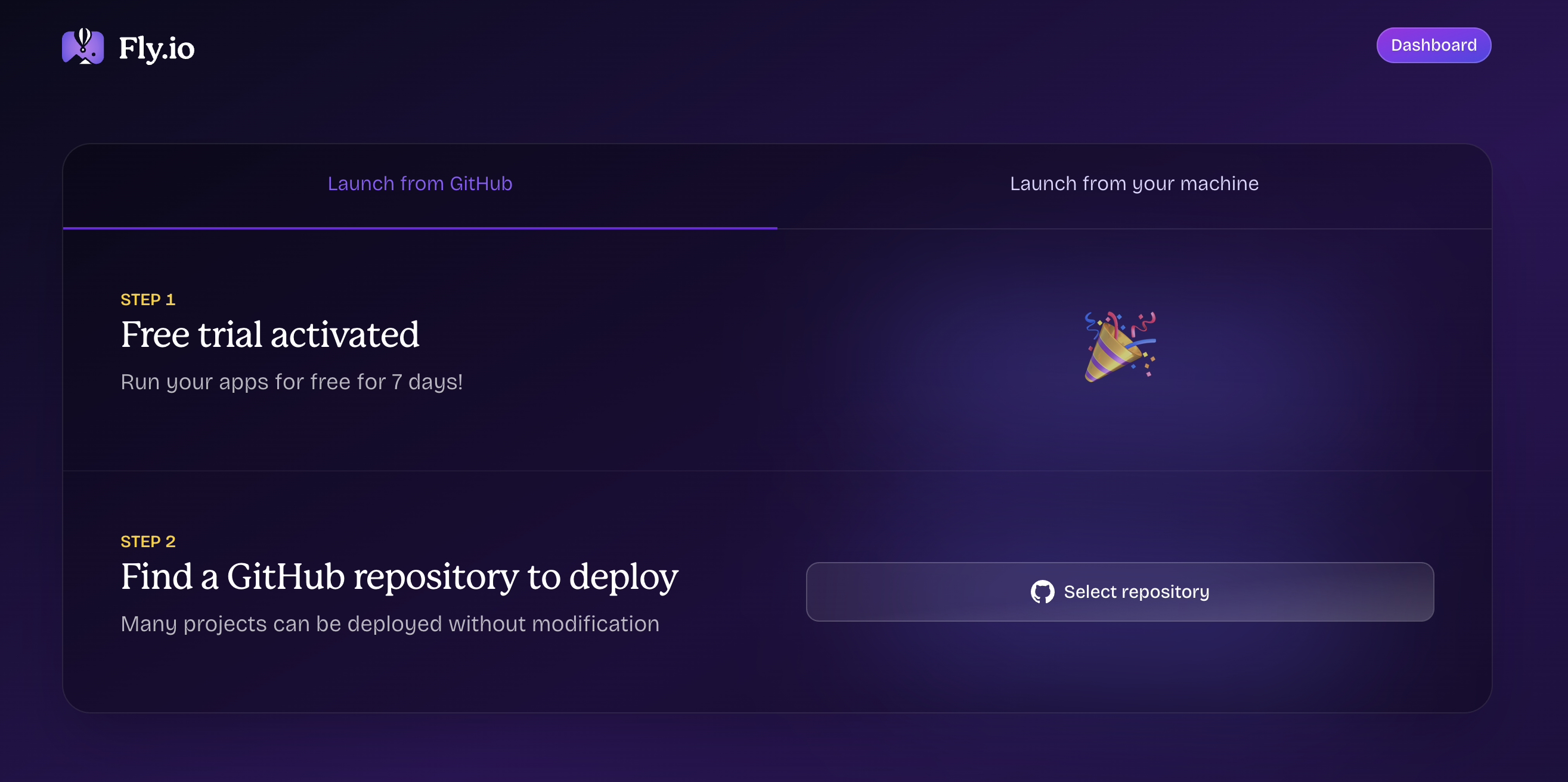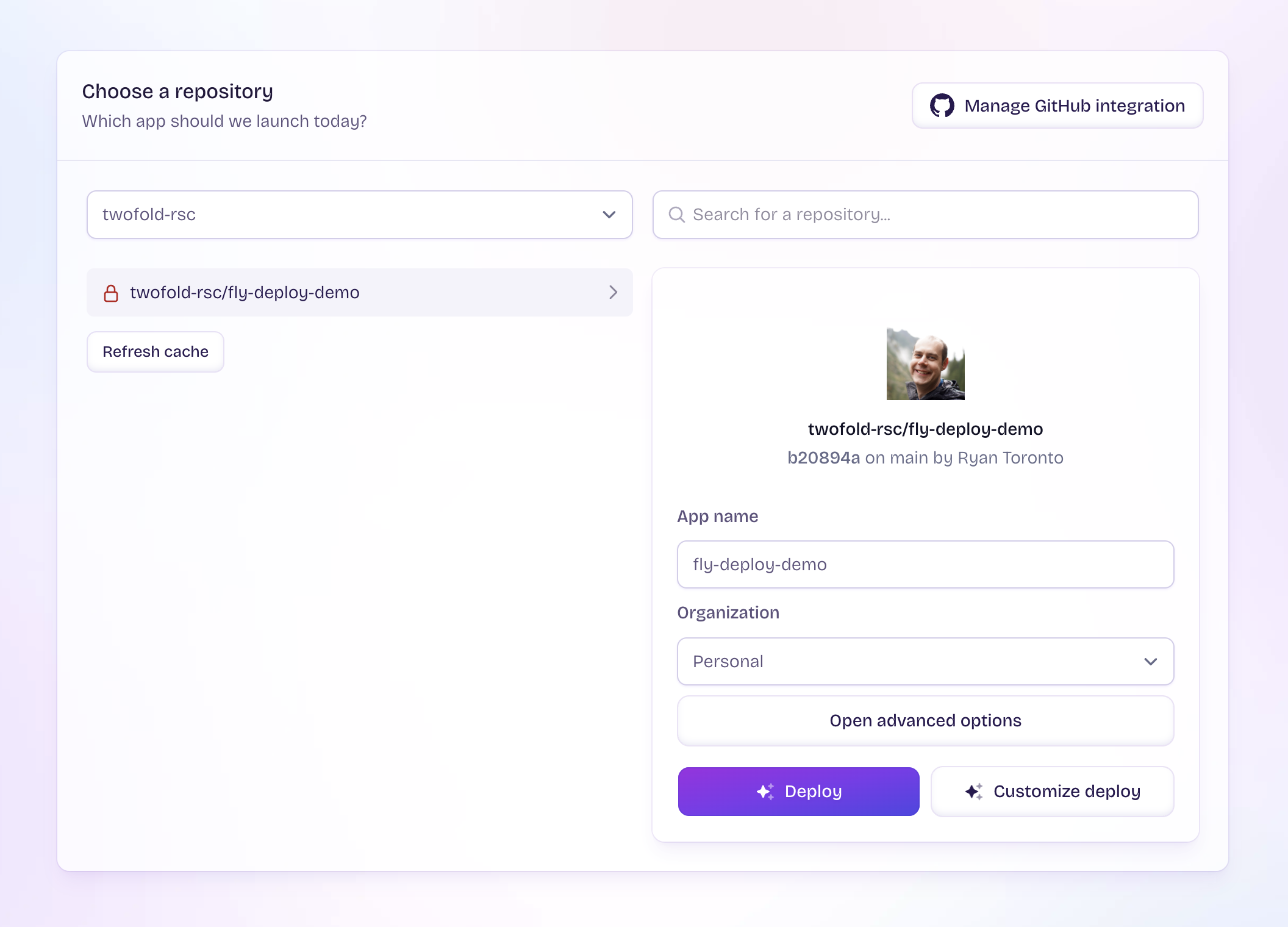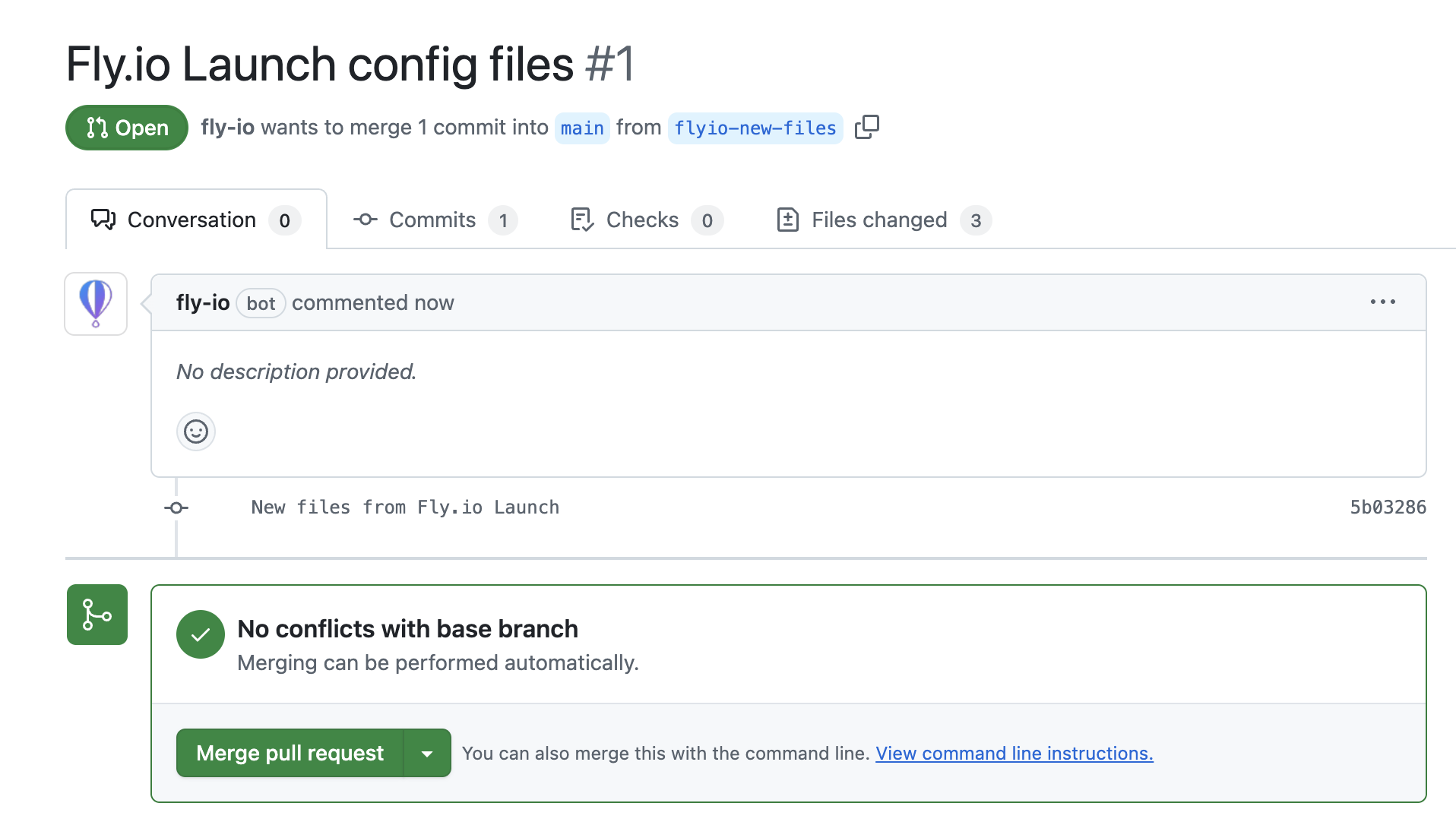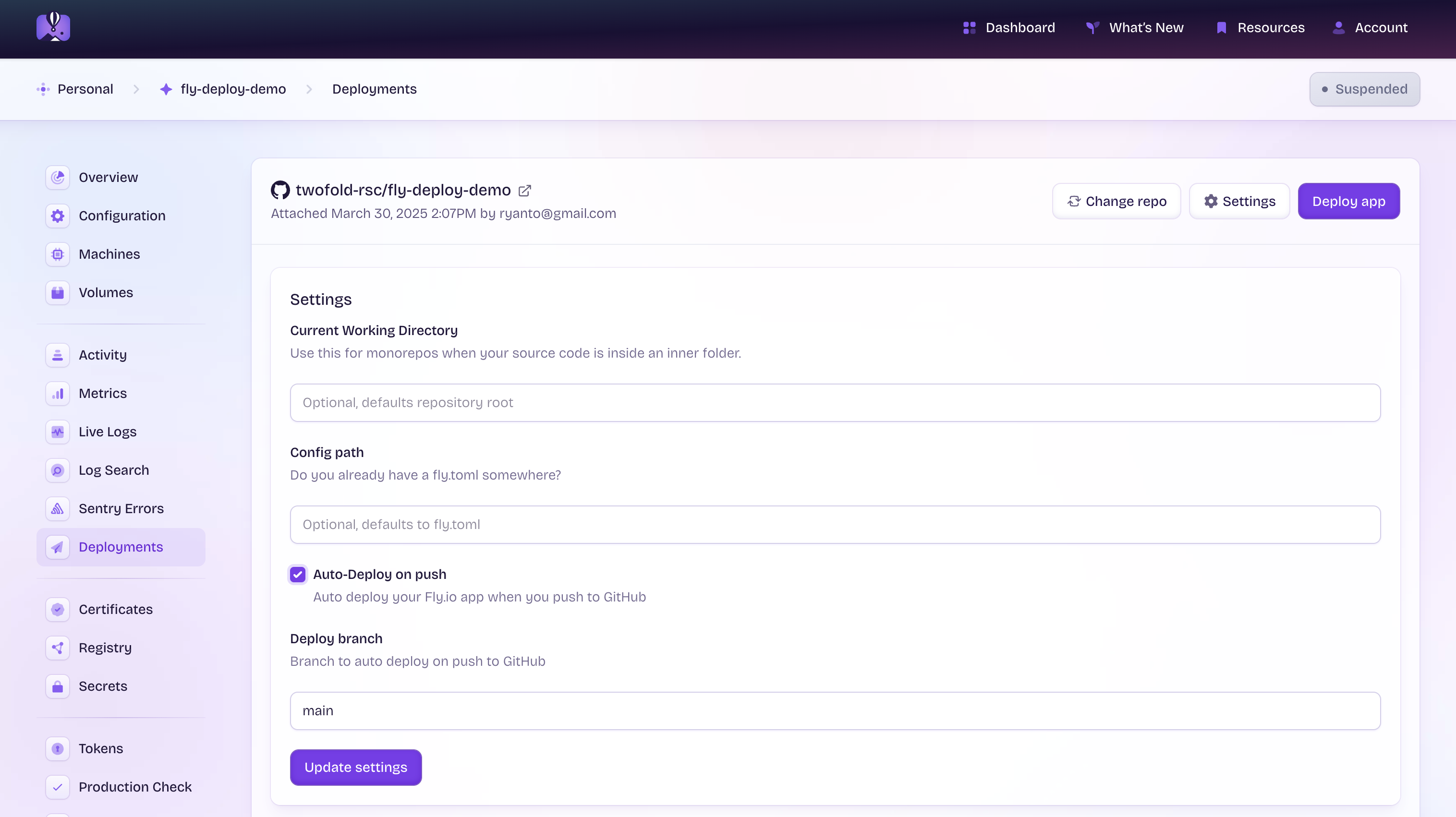Fly.io
This guide will show you how to deploy a Twofold app to Fly.io.
Fly.io is a developer-friendly cloud platform that lets you deploy your app with minimal configuration. They take care of all the infrastructure, including auto-scaling and managing SSL certificates.
Prerequisites
- A Twofold app
- A GitHub repository for your app
- A Fly.io account
Step 1: Launch an app on Fly.io
Login to your Fly.io account and visit the dashboard. Click the "Launch App" button.
When asked, select "Launch from GitHub" and choose your repository.

Finally, select the GitHub repository that contains your Twofold app.
Before seeing your repository, you may be asked to grant Fly.io access to your GitHub repositories. Follow the prompts to do so.
Step 2: Customize your deploy
Once your GitHub repository is selected, click the button that says "Customize deploy".

Region
Select the location that's closest to you.
Internal port
Enter 3000 as the internal port.

Machine sizes
Select the machine size you want to use. Any of the available options should be sufficient for running a Twofold app. If you are unsure what to select and are just testing, then the shared CPU with 512mb of RAM is a good option.

Secrets
You'll need to add a TWOFOLD_SECRET_KEY secret to deploy your app. This can be any random string. If you are unsure what to use here, you can copy the existing one from your local .env file.

Step 3: Deploy your app
We're now done customizing the deploy. Click the "Confirm settings" button to start your first deployment.
After about a minute, your app should be deployed and you should see a success message.

You can click the "Visit your app" button to see your Twofold app running on Fly!
Step 4: Create the Fly Pull Request
Fly will create a pull request in your GitHub repository with the necessary configuration files to deploy your app again in the future.
Click the purple "Create Pull Request" button.
And then click the "See Pull Request" button. This will take you to the pull request in your GitHub repository.

You can merge this pull request into your main branch.
Step 5: Enable auto deploy
Setup Fly to automatically deploy your app whenever you push to GitHub.
Go back to the Fly.io dashboard and select your app. Then navigate to Deployments -> Settings and enable the Auto Deploy option.

Now Fly.io will automatically deploy your app whenever you push to the main branch.
Step 6: Turn off automatic suspension
By default, Fly.io apps automatically suspend after a time period of inactivity. There are some pros and cons to suspending your app.
- Pro: You don't have to pay for an app that isn't being used. This is great for demo applications.
- Con: Your app will take a few seconds to start up when it is accessed after being suspended. This is not ideal for production applications.
In order to keep your Twofold app fast and responsive, it's recommended that you disable the automatic suspension.
You can skip the rest of this step if you are just testing your app and don't mind the slow startup time that is associated with suspended apps.
Pull main down to your computer
Pull the changes from the Fly pull request down to your local machine.
git pull origin main
Open the fly.toml file, this file contains the configuration for your Fly.io app.
Change the auto_stop_machines setting to false. And set the min_machines_running setting to 1.
# fly.toml
app = 'fly-deploy-demo'
primary_region = 'iad'
[build]
[http_service]
internal_port = 3000
force_https = true
auto_stop_machines = 'stop'
auto_stop_machines = false
auto_start_machines = true
min_machines_running = 0
min_machines_running = 1
processes = ['app']
[[vm]]
memory = '1gb'
cpu_kind = 'shared'
cpus = 1
memory_mb = 512
These settings will ensure that your app is always running and ready to serve requests.
Commit these changes to your local repository and push them to GitHub.
Step 7: All done
That's it! Your Twofold app is now deployed to Fly.io and will automatically redeploy whenever you push to GitHub. 🎉